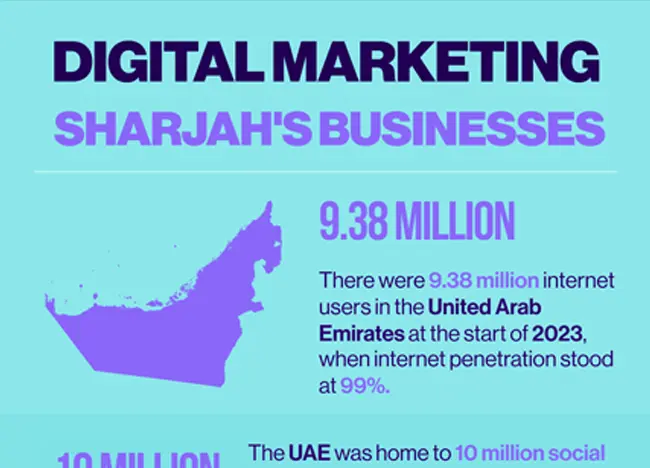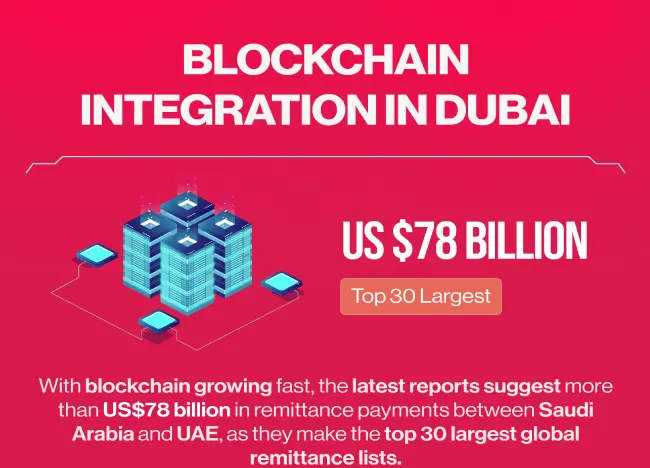Introduction
Singapore, known for its forward-thinking approach to technology and innovation, is at the forefront of the 5G revolution. As the next generation of wireless technology, 5G promises to revolutionize connectivity, enabling faster speeds, lower latency, and unprecedented levels of connectivity. This article explores how Singapore is embracing the 5G revolution and the transformative impact it is expected to have on the city-state's digital landscape.

Infographics by GO-Globe Singapore
Power of 5G in Singapore
Unprecedented Speed and Capacity
5G networks in Singapore offer unprecedented speed and capacity, delivering data transfer rates that are significantly faster than previous generations of mobile networks. This enables Singaporeans to enjoy seamless streaming of high-definition content, lightning-fast downloads and uploads, and real-time gaming experiences with minimal lag.
Ultra-Low Latency
With ultra-low latency, 5G technology reduces the delay between sending and receiving data packets, enabling near-instantaneous responsiveness for applications that require real-time interaction. This is particularly crucial for emerging technologies such as augmented reality (AR), virtual reality (VR), and autonomous vehicles, where split-second decisions can make a significant difference.
Massive Connectivity
5G networks support a massive increase in device connectivity, paving the way for the Internet of Things (IoT) to thrive in Singapore. From smart homes and connected cars to industrial sensors and wearable devices, the proliferation of IoT devices powered by 5G technology enhances efficiency, productivity, and convenience across various sectors.
Support for Emerging Technologies
The rollout of 5G networks in Singapore will provide the foundation for a wide range of emerging technologies, including the Internet of Things (IoT), artificial intelligence (AI), and autonomous vehicles. These technologies rely on high-speed, low-latency connectivity to function effectively, and 5G networks will unlock their full potential, driving innovation and economic growth.
Empowering Industries and Businesses
5G technology has the potential to transform various industries in Singapore, from healthcare and manufacturing to transportation and logistics. Ultra-reliable, low-latency connections will enable real-time monitoring, remote diagnostics, and automation, leading to greater efficiency, productivity, and competitiveness for businesses across sectors.
Challenges and Opportunities
Infrastructure Deployment
While Singapore has made significant progress in deploying 5G infrastructure, challenges remain, including the need for extensive network densification and the allocation of spectrum. Overcoming these challenges will require collaboration between government agencies, telecom operators, and other stakeholders.
Security and Privacy Concerns
As with any new technology, 5G brings security and privacy concerns. Singapore must address these challenges by implementing robust cybersecurity measures, ensuring data protection, and fostering trust among users and businesses.
Innovation Ecosystem
Singapore's vibrant innovation ecosystem positions it well to capitalize on the opportunities presented by 5G technology. By fostering collaboration between industry players, research institutions, and startups, Singapore can drive innovation and develop cutting-edge solutions that leverage the full potential of 5G.
Future Outlook
With its unprecedented speed, ultra-low latency, and massive connectivity, 5G is set to revolutionise various aspects of life in Singapore, shaping the way we live, work, and interact with the world around us.
Advanced Smart City Solutions
The widespread adoption of 5G technology will accelerate the development of advanced smart city solutions in Singapore. From intelligent transportation systems and smart energy grids to connected healthcare and public safety initiatives, 5G-enabled innovations will enhance efficiency, sustainability, and quality of life for residents and businesses across the island.
Autonomous Vehicles and Mobility Solutions
The deployment of 5G networks will pave the way for the widespread adoption of autonomous vehicles and mobility solutions in Singapore. With reliable, high-speed connectivity, self-driving cars, drones, and smart transportation systems will become commonplace, revolutionizing the way people and goods move around the city-state.
Remote Healthcare and Telemedicine
5G technology will facilitate the expansion of remote healthcare and telemedicine services in Singapore, enabling patients to access high-quality medical care from the comfort of their homes. From remote consultations and diagnostic services to real-time monitoring and tele-surgery, 5G-powered healthcare solutions will improve accessibility, efficiency, and outcomes for patients across Singapore.
Industry 4.0 and Smart Manufacturing
In the realm of industry and manufacturing, 5G technology will drive the adoption of Industry 4.0 principles and smart manufacturing practices in Singapore. With its ability to support massive connectivity and real-time data transmission, 5G will enable the deployment of autonomous robots, IoT-enabled sensors, and AI-driven analytics, revolutionizing production processes and supply chain management.
Sustainable Urban Development
The integration of 5G technology into urban planning and development initiatives will support Singapore's sustainability goals and promote eco-friendly practices. By enabling smart energy management, efficient transportation systems, and intelligent infrastructure, 5G will contribute to a more sustainable and resilient urban environment, reducing carbon emissions and environmental impact.
5G Revolution Transforming Connectivity in Singapore
- In 2024, Mobile penetration rate in Singapore is currently at 169.6%.
- Number of mobile phone subscriptions in Singapore is estimated as 1.31 million users as of February 2024.
- Forecasted share of 5G mobile connections in Singapore for total worldwide connections by 2025 is estimated as 55%.
- As of 14 February 2024, StarHub has achieved the milestone of over 99% coverage for its outdoor 5G network in Singapore.
- As of May 2023, the average download speed on Singapore's 5G network was 376.8 Mbps, while the average upload speed reached 30 Mbps.
- Consumers enjoy maximum download speeds of 718.8 Mbps on average. This connection speed is enabled by the city-state's network coverage.
- Singapore is in fact, the first country in the world to be fully covered by standalone 5G since July 2022.
- Singtel, StarHub, and M1 are the main providers responsible for operating 5G networks nationwide. Singtel has led this development, achieving over 95% standalone coverage in July 2022, three years ahead of the government's 2025 target.
- Consumers are gradually turning to 5G mobile subscriptions, with steady growth since July 2022. Subscriptions reached a peak of 1.32 million in March 2023.
- Among these, Singtel’s total 5G customer base represents more than 760,000 users.
- Among the smartphones, the iPhone 14 Pro Max ranked as the fastest phone, based on its median download speed of 24.63 Mbps on a 5G network in Singapore.
- Mobile data service revenue in Singapore is expected to increase at a CAGR of 7.2% between 2022 and 2027.
- Mobile service revenue in Singapore is projected to reach $2.1 billion by the end of 2027.
- The average monthly data usage in Singapore is expected to increase from 9.4GB in 2022 to 23.6GB in 2027, driven by the increasing consumption of online video and social media content over smartphones
- 5G subscriptions are forecasted to surpass 4G subscriptions in 2025 and is expected to account for 76% of total mobile subscriptions by the end of 2027.
Conclusion
The 5G revolution is poised to transform connectivity in Singapore, ushering in a new era of innovation, productivity, and economic growth. As Singapore continues to invest in 5G infrastructure and foster a conducive regulatory environment, the city-state is well-positioned to emerge as a global leader in the digital economy.
See Also: SEO And Digital Marketing In Singapore
FAQs
Q1. What is 5G, and how does it differ from previous generations of mobile networks?
A: 5G is the fifth generation of mobile network technology, succeeding 4G LTE. It offers significantly faster speeds, lower latency, and greater capacity, enabling a wide range of new applications and services.
Q2. How will 5G benefit Singaporeans in their daily lives?
A: 5G technology will enhance connectivity for Singaporeans, which will enable seamless streaming of high-definition content, faster downloads and uploads, and improved performance for gaming and other real-time applications.
Q3. What are some of the key industries that will be impacted by the rollout of 5G in Singapore?
A: The rollout of 5G will have a profound impact on various industries in Singapore, including healthcare, transportation, manufacturing, and entertainment. It will enable advancements such as remote healthcare services, autonomous vehicles, smart manufacturing processes, and immersive digital experiences.
Q4. How will 5G contribute to Singapore's Smart Nation vision?
Answer: 5G technology is a key enabler of Singapore's Smart Nation vision, supporting initiatives aimed at improving quality of life, enhancing sustainability, and driving economic growth. It will facilitate the deployment of smart city solutions, IoT devices, and digital services that improve efficiency, convenience, and accessibility for residents and businesses.
Q5. What measures are being taken to address concerns about privacy and security with the deployment of 5G networks?
A: The Singapore government and telecommunications regulators are implementing stringent measures to address concerns about privacy and security with the deployment of 5G networks. This includes ensuring compliance with data protection regulations, implementing robust cybersecurity measures, and conducting regular audits and assessments of network infrastructure.
Q6. Will the rollout of 5G result in job creation or displacement in Singapore?
A: While the rollout of 5G is expected to create new opportunities and jobs in industries such as telecommunications, technology, and digital services, it may also lead to displacement in certain sectors due to automation and technological advancements.
Q7. How will 5G impact Singapore's competitiveness on the global stage?
A: The adoption of 5G technology is crucial for maintaining Singapore's competitiveness on the global stage. By embracing 5G, Singapore can attract investments, foster innovation, and drive economic growth in key industries. It will also position Singapore as a leading hub for technology and connectivity in the Asia-Pacific region.
Q8. What role can individuals and businesses play in harnessing the benefits of 5G in Singapore?
A: Individuals and businesses can play a proactive role in harnessing the benefits of 5G in Singapore by staying informed about new developments and opportunities, exploring innovative use cases and applications, and collaborating with partners to co-create solutions that leverage 5G technology to address societal challenges and drive growth.








